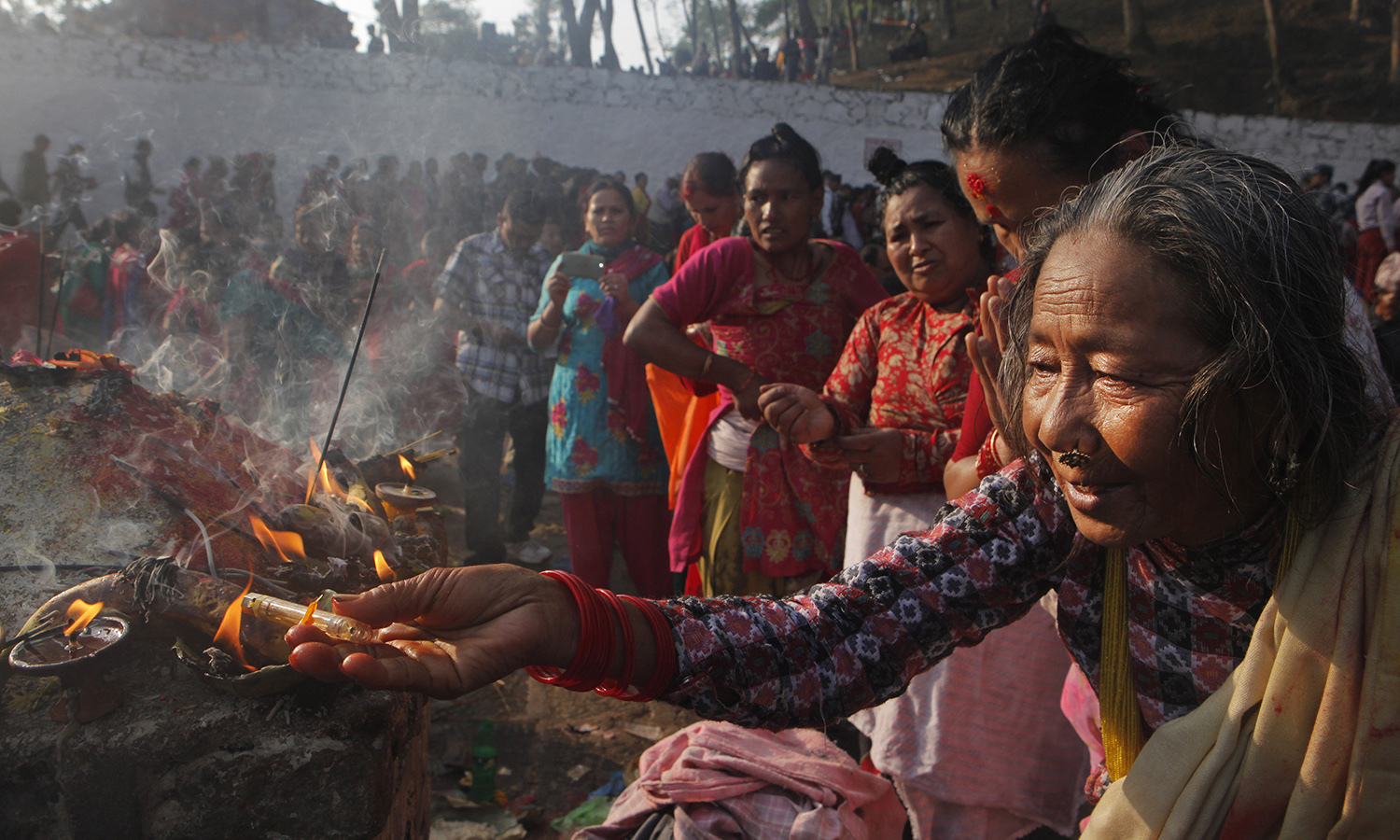[ Kathmandu, Nepal ]
Happy Mata Tirtha Aunshi (Nepali Mother’s Day)! How did you celebrate?
For my part I celebrated by visiting my Nepali mom in the ICU for a second consecutive day. This time surrounded by a gaggle of cute, giggling ICU nurses–highly entertained by my bad Nepali and good-naturedly assisting in my communications with Aamaa. Her condition is roughly the same as yesterday, and slightly improving. She’s still got some fluid in her lungs, and they’re having trouble clearing it out. Until they succeed, she stays in the ICU. She was more animated today, and her color was great, so my takeaway is that she’s good, and getting better.
Before I walked into her room, I had no idea today was Mata Tirtha Aunshi, but the nurses quickly let me know I had chosen a good time to visit my “mom.” They (jokingly) admonished me (‘tsk tsk’ing and finger wagging) for not bringing her an offering of food, which is part of how they celebrate the holiday here.
So what’s up with Mother’s Day?
Here’s the story, which I took from this page, and cleaned up a bit.
The boy was overjoyed, and pleaded with his mother to leave the pond and return home with him. No matter how much he insisted, and even though he began to cry and beg, his mother gently told him she could not leave her own death behind; she could never return home with him. But she was so moved by his love that she promised to return for him once every year, on Baishak Krishna Aushi [Baishak is the first month of the Nepali year, and Krishna Aushi is the day of the first New Moon]. He agreed, and they parted ways.
The next year, and every year afterwards, he returned to the pond to visit his mother on that same day, bringing her offerings of food and rejoicing in their temporary reunion. Over the years, many other people heard his story and began to visit their mothers, too, for all who came to seek their mothers with love in their hearts were able to find them.
One day, a young woman came to the pond to see her mother. Although she waited and waited and waited–and loved her mother very much–her mother did not appear. The young woman was so distraught she drowned herself in the pond, overwhelmed by grief. Her suicide showed great disrespect, and brought dishonor to her mother. The power of her suicide was so great that the magic of the pond was diminished; it was no longer able to overcome death, not even for a day. The mothers could no longer undertake the journey from the beyond the grave, they could no longer appear in the pond and visit their loved ones. But the love between mother and child is so great that children continue to visit their mothers to this day, to bathe in the waters and offer food and other gifts to show their love and respect for their mothers.
*****
Photo: AP/Niranjan Shrestha






